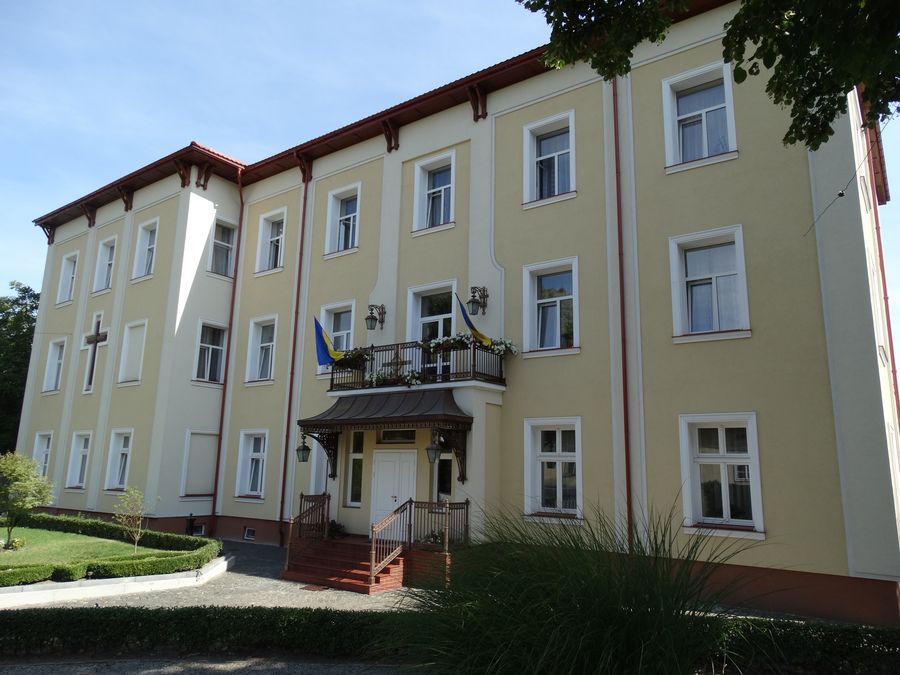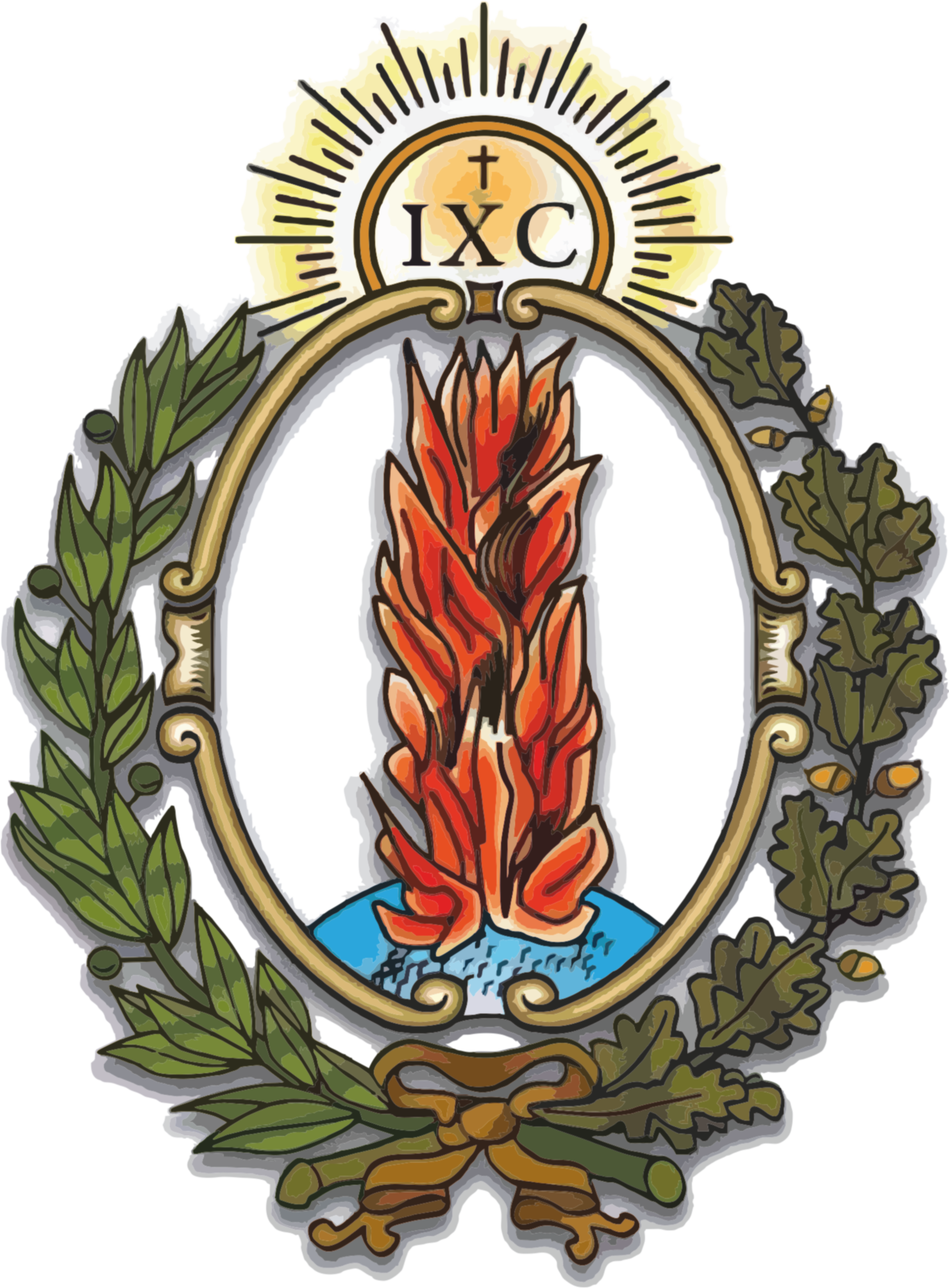
The community of the Sisters of the Order of St. Basil the Great is the oldest in Ukraine. However, it is impossible to name a specific date of foundation of the monastic community of the Sisters of the Order of St. Basil the Great, as it is not subject to the general rules for the establishment of women’s congregations of the Ukrainian Greek Catholic Church (UGCC).
It has its roots in the beginnings of Christianity in Kyivan Rus, because with the spread of the Christian faith in our lands, a radical way of imitating Christ – living by the Gospel counsels, that is, monastic life, and in particular, female monasticism – spread and developed. Unlike today, at that time there were not many varieties of monastic women’s communities. The monasteries were similar to each other, preserving the patristic teachings on monastic ascetic life.
After the Union of Brest, all the monasteries that accepted the Union underwent a reform: the statutes were based on the rules of St. Basil the Great, the so-called “Excerpt from the Rules of St. Basil the Great for Nuns,” which was compiled for nuns by Metropolitan Veniamin Rutsky. Thus, women’s Greek Catholic monasteries are called “Basilian” or in other words: Order of St. Basil the Great.
The development of female monasteries depended to a large extent on the political and economic situation in the country. Before the arrival of Austrian rule in 1772, there were up to forty monasteries in Galicia. As a result of the Habsburg policy, only two of the monasteries remained: in Slovita (Lviv Archeparchy) and in Yavoriv (Przemysl Eparchy). Even those monasteries were forbidden to accept new members. It was only in 1821 that Metropolitan Mykhailo Levytskyi managed to obtain permission to reopen these monasteries on the condition that the Basilian nuns be involved in educational activities. This opened a new page in the history of the Basilian Sisters. In 1823, at the Slovitsky monastery, and in 1848, at the Yavorivsky monastery, girls’ educational schools were opened.
In the late nineteenth and early twentieth centuries, Basilian monasteries were reformed and subjected to renewal by Metropolitans Sylvester Sembratovych and Andrei Sheptytsky of the Greek Catholic Church. As a result, the nuns further expanded their activities, founded new monasteries in Galicia and beyond. In particular, new monasteries were opened in America, Argentina, Slovakia, Hungary, Poland, and Croatia at the invitation of local bishops, which led to the centralization of all Basilian women’s monasteries in 1951 and the establishment of the seat of the General Administration headed by the Archimandriniya in the heart of the universal Church, Rome.
In the first third of the twentieth century, there were quite a few Basilian female monasteries in Galicia:
- the monastery in Yavoriv was known for the quality of its work in education and social work. It had subsidiary houses in Przemysl and Drohobych, where a girls’ school, a teacher’s college, a boarding school for girls, a high school, and an orphanage were established. Another subsidiary house of the Yavoriv monastery in Nyzhnye Vysotske had a hospital.
- the monastery in Slovita had branches in Korczyn and Vyshnivchyk with schools and orphanages;
- the monastery of St. Macrina in Lviv on Potocki Street (now Generala Chuprynky Street 101, 103) had a public schoo which later developed into a high school, a teacher’s college, and an orphanage (with forty five to two hundred fifty orphans after World War I). The monastery had a subsidiary house in Rivka Yasinska (Kamyntsi) near Pidliuty, where the nuns ran a school and took care of orphans;
- the monastery of St. Basil the Great in Lviv on Dlugosza Street (now Cyril and Methodius Street, 17 and 17a) had a public school, a boarding school for girls, a vocational school, and a high school. The monastery had subsidiary houses in Zhyravets and Myloshovychi (Berehy);
- another monastery in Pidmikhailivtsi where the sisters took care of orphans.
In the monastery of St. Joseph in Ivano-Frankivsk (formerly Stanislaviv), founded in 1900, the Basilian nuns ran Mary’s Institute, a public school, and a teacher’s college from 1909. From this monastery, the Sisters’ apostolic activity spread to Transcarpathia: Uzhhorod, Khust, Rakhiv, and Mukachevo. In Uzhhorod, three boarding schools for female students were transferred to the care of the nuns. Before the Second World War, the apostolic activity of the Sisters grew. In Uzhhorod itself, there were five shelters for children and several orphanages. In Mukachevo, the nuns were also involved with work at a children’s hospital.
The monastery in Kudryntsi was also well known for the excellent care the sisters provided for the orphans.
At that time all the above mentioned monasteries included: nine general education schools, one vocational school and four teachers’ colleges, two high schools, three boarding schools for girls, three orphanages and two cemeteries. At that time, there were more than 330 sisters in these monasteries.
This successful spiritual and social work in Ukraine was obstructed by the Soviet atheistic regime. With it came a time of trial for the entire Greek Catholic Church. The Basilian monasteries, like others, were gradually liquidated, the Sisters were dispersed and some of them were imprisoned and exiled to Siberian concentration camps. However, even in underground conditions, they did not stop their activities. They continued to sow the Word of God in the hearts of people, preparing them to receive the Holy Mysteries in secret, leading lives of prayer, sacrifice, and self-denial, and rushing to help all who needed it.
Today in 2024, the Basilian Sisters of Holy Trinity Province are in twenty-two monasteries and communities in Ukraine and abroad – in Poland, Germany, Italy, Greece, and the United States on missionary work.
International ministry in the Order
From the Ukrainian Holy Trinity Province, the Basilian Sisters collaborate in missionary service with other Provinces of the Order: the Jesus Lover of Humanity Province in the United States of America (Philadelphia)and the Holy Cross Province in Poland (Warsaw, Gorlice).
United in one faith by the common goal of glorifying our Lord, we serve Him patiently, receive Him journeying, believe in Him risen, and await Him glorified.
The Apostolate of the Basilian Sisters of the Province of the Most Holy Trinity
The activities of the Basilian Sisters of the Most Holy Trinity Province in Ukraine are primarily focused on glorifying God through the liturgical prayer of the Church, immersing ourselves in the depths of the ascetic writings of St. Basil the Great and imitating the angelic life of St. Mother Macrina, our holy founders. Every work performed by the Sisters becomes a prayer made before the face of God. Our constant duty is to remember that “The measure of love is infinity” (John Chrysostom).
The Basilian Sisters do ministry in various areas and spheres:
- Catechesis. Catechesis of children, youth and adults in schools, parishes, communities and preparation for the reception of the Holy Mysteries.
- Spiritual guidance of youth organizations and other communities. Cooperation and spiritual guidance of youth organizations and communities, spiritual guidance of girls belonging to the youth organization of scouts; spiritual guidance of the community “Mothers in Prayer”, organization of retreats for girls.
- Work in social and medical institutions. Work in social and medical institutions and organizations: Caritas, the Ukrainian Union of the Disabled, and others, where there is an opportunity to take care not only of the social needs of people but also of their spiritual needs, and provide professional psychological and psychotherapeutic assistance.
- Work in sacristies at churches. Take care of the beauty of God’s temple, receive intentions for worship, and give spiritual advice to people who come to the Sisters with their pains and troubles and ask for prayer and advice. They also work in church stores and bake prosphora.
- Taking care of orphans. Run a social rehabilitation center (children’s center) called “ Makrina’s Room” where children who have been removed from their families and are waiting for Social Services to decide on their placement.
- Administer St. Basil the Great Catholic Primary School (Ivano-Frankivsk), administrating the Siaivo kindergarten (Yavoriv, Lviv region) and work in the Veselka kindergarten (Perechyn, Zakarpattia region).
- Teaching activity. Sisters teach at the Ukrainian Catholic University, the Basilian Institute of Philosophical and Theological Studies named after Metropolitan Joseph-Velamin Rutsky, the Kyiv Three Saints Seminary, the Institute of Theological Sciences, and the Medical College. Sisters are also teach Christian ethics in schools and tutor children from low-income families various subjects for preparation of school and entrance exams.
- Work in church structures. Sisters are involved in the Patriarchal Curia of the UGCC: The Patriarchal Commission on Monasticism, the Commission on Health Care Pastoral Care, and the Patriarchal Catechetical Commission.
- Write icons, teach icon painting to children and adults, write icons for iconostases, paint churches.
- Sisters sew liturgical vestments, cassocks, and other church items.
- Handmade works. Sisters embroider, make Pysanky, make candles, create postcards, rosaries, Jesus beads, religious souvenirs from polymer clay.
- Economic activity. Grow herbs and medicinal plants, produce teas, are beekeepers, produce bee products, make medicinal balms, grow vegetables and fruits.
